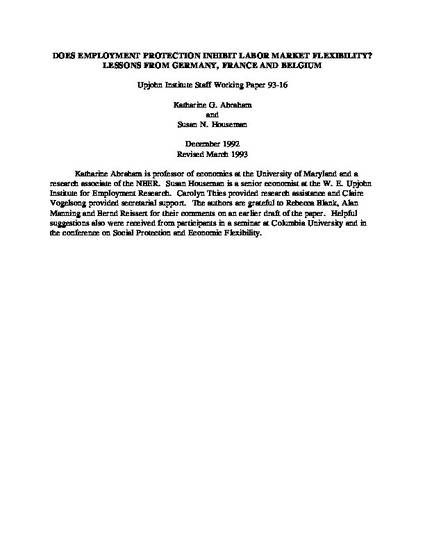
Laws in most West European countries give workers strong job rights, including the right to advance notice of layoff and the right to severance pay or other compensation if laid off. Many of these same countries also encourage hours adjustment in lieu of layoffs by providing prorated unemployment compensation to workers on reduced hours. This paper compares the adjustment of manufacturing employment and hours in West Germany, France and Belgium, three countries with strong job security regulations and well-established short-time compensation systems, with that in the United States. Although the adjustment of employment to changes in output is much slower in the German, French and Belgian manufacturing sectors than in U.S. manufacturing, the adjustment of total hours worked is much more similar. The short-time system makes a significant contribution to observed adjustment in all three European countries. In addition, we find little evidence that the weakening of job security regulations that occurred in Germany, France and Belgium during the 1980s affected employers' adjustment to changes in output. These findings suggest that, given appropriate supporting institutions, strong job security need not inhibit employer adjustment to changing conditions.
